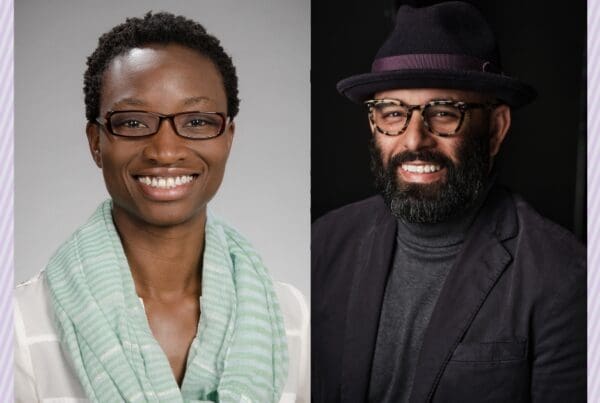Highlights | Pilot study with a practical solution
- For many people, transportation poses a significant barrier to accessing procedures for colorectal cancer screening.
- A UW Medicine and Fred Hutchinson Cancer Center rideshare study shows that, if given a way to get home from a colonoscopy after sedation, many patients will seek out a procedure they would otherwise avoid.
- Recruitment in the program is ongoing and the study’s investigators are considering expanding the program to include other sedation-required exams.
Rideshare apps are convenient when you’re out of transportation options, like when your bus is running late and you need to get to work, or none of your friends volunteered to take you to the airport for that 7 a.m. flight. But could it also help get you home from the hospital after a sedated procedure like a colonoscopy?
A first-of-its-kind rideshare study, co-led by UW Medicine and the Fred Hutchinson Cancer Center, showed just that: If given a way to get home from a colonoscopy after sedation, many patients will seek out a procedure they would otherwise avoid.
The study was presented at a conference in Chicago, and the abstract was published by the journal Gastroenterology.
Barriers to screenings
In prior studies, transportation was cited as one of the main barriers to completing a colonoscopy, says senior author Rachel Issaka, MD. Issaka directs the UW Medicine and Fred Hutch Population Health Colorectal Cancer Screening Program and is an associate professor of medicine, Division of Gastroenterology, at the University of Washington School of Medicine.
This, in turn, led “to missed or delayed colonoscopies for initial screening or follow-up of abnormal non-invasive tests,” the report notes.
“We’re the first program of this kind in this country, and it’s because most endoscopy centers around the nation will not typically allow individuals to get into a rideshare vehicle after receiving sedation,” says Issaka.
Patient experience
“All but one of the riders said this was a very positive experience for them,” says Ari Bell-Brown, MPH, a research program manager at Fred Hutch.
All of the participants were recruited from Harborview Medical Center, and even the patient who did not have a positive experience would use a rideshare again or recommend this to a friend who needed a colonoscopy, according to the survey response.
Twenty-two patients had taken part in the rideshare study at the time of the presentation. Approximately 38% of the participants identified as white, 28% identified as Black and 25% as Hispanic. The majority of participants (71%) have been men. The participants said they typically traveled by public transportation (64%) or on foot (36%) to attend appointments at Harborview Medical Center.
Expanding the program
Recruitment in the program is ongoing, and participants are identified by the clinical team that screens patients to ensure they have a chaperone or transportation lined up prior to scheduling a colonoscopy.
The study’s investigators are considering expanding the program, Issaka says, noting that rideshare could also help facilitate lung cancer screenings (bronchoscopy) and other exams for which patients receive sedation.
“We found that transportation costs were very modest, generally about $20 to $25 dollars per ride, so we are also interested in exploring analyses that would encourage insurance companies to cover this service for patients who receive procedural sedation in the future,” she says.
In 2021, UW Medicine and Fred Hutch jointly implemented a program in which patients in need of colorectal screening received a fecal immunochemical test (FIT) at home via U.S. mail. This program also included health system navigators who provided patients guidance about self-administering the screening and assisted with follow-up colonoscopies. Adding a rideshare component to this program would be a logical next step, Issaka says.
Improving outcomes
An earlier study, also led by UW Medicine and Fred Hutch researchers, found that only about 40% of patients with abnormal fecal immunochemical test results sought follow-up colonoscopies within one year.
“Colon cancer is one of the most preventable cancers, and one in three people who are due for screening have not completed it,” Issaka said. “Improving screening and follow-up of non-invasive tests will help us find cancer earlier, when it’s easier to treat. Our study shows that there are practical solutions to these challenges, and they are necessary for those who experience the most disparities.”
Rideshare might just be the solution.
Editor’s Note: Originally published on the UW Medicine Newsroom.


